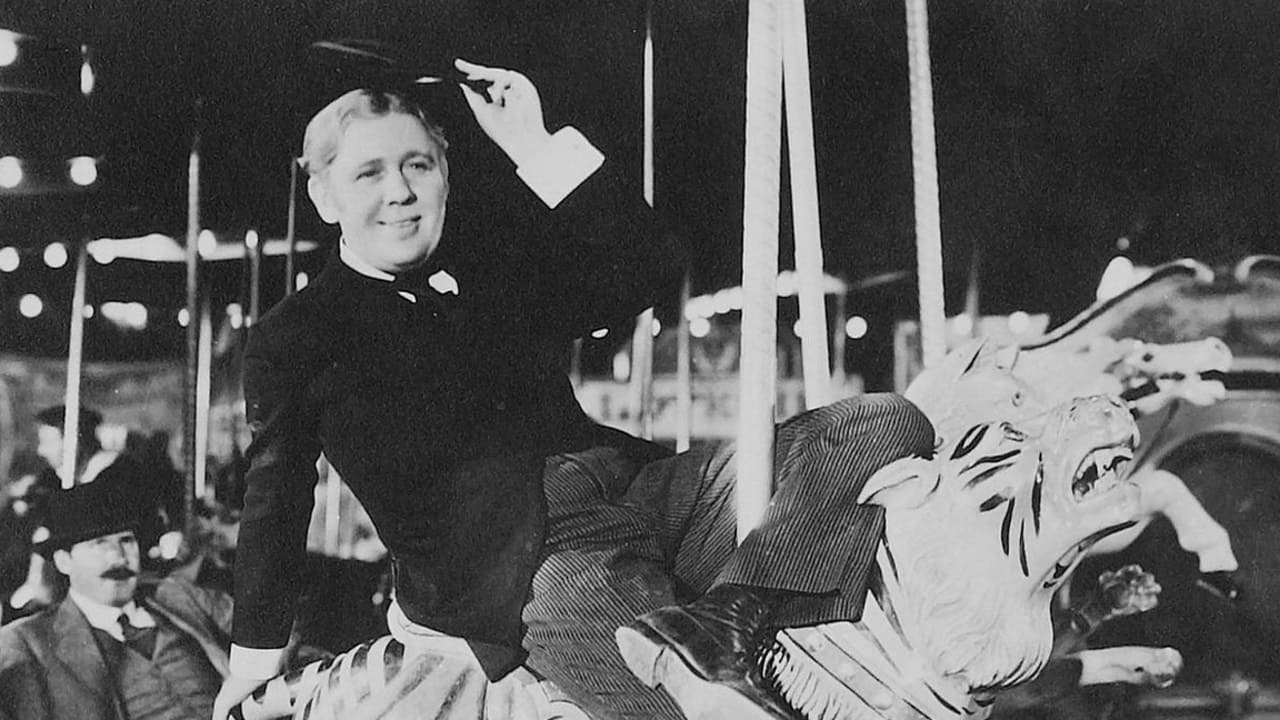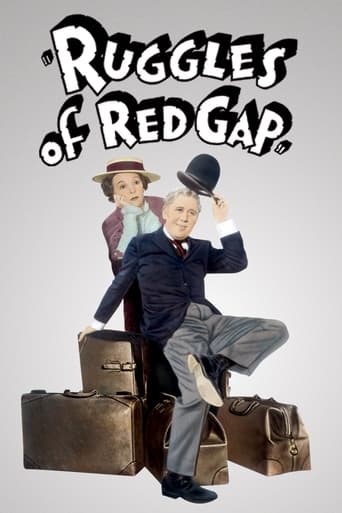

Wonderful character development!
... View MoreIt's a mild crowd pleaser for people who are exhausted by blockbusters.
... View MoreStrong acting helps the film overcome an uncertain premise and create characters that hold our attention absolutely.
... View MoreWorth seeing just to witness how winsome it is.
... View MoreA "fish out of water" 1930's comedy with Charles Laughton as an English Butler "won" in a poker game and brought to America against his will. A great supporting cast with the personas of Zazu Pits, Charles Ruggles and many others. It is set in 1908 in a "rural town" just coming out of the "frontier". No decent restaurant with "grub" at the saloon, so the displaced butler starts one. ( I am surprised that a local hotel or boarding house doesn't serve decent food?) "The Gettysburg Address" is recited as well! It reminds me of the Brit sit-com "Keeping Up Appearances" as a most "common" lady tries to put-on social "airs". Well-directed by the man who brought us "Going My Way" and other more classical tales. Most engaging with only a little "slapstick" at the very end. Made 4 times on film and the basic concept "recycled" numerous times in other movies and TV shows. Quite enjoyable, but I don't feel the need to own it.
... View MoreHarry Leon Wilson's 1915 novel about a British "gentleman's gentleman" adjusting to life in America's Wild West proved a popular subject for films. Edward Everett Horton played him in 1923 but, once again, Charles Laughton made the role his own in the definitive 1935 version. Laughton was ideally cast as Marmaduke Ruggles, the valet of scatterbrained Britisher George Vane Bassingwell (Roland Young), who is won in a poker game by George's nouveau-riche American cousin Egbert Fround (Charles Ruggles). This is just the most hilarious movie, Laughton's calm and very human characterization is in sharp contrast to his usual sinister and exotic roles.Fround and his wife, Effie (Mary Boland) are doing the "Grand Tour" and Effie hopes that Ruggles will use his influence to give Fround a touch of class (Fround wears check suits, plaid suits, refuses to have his "handle bar" moustache trimmed and prefers to frequent cafes and beer halls rather than museums and art galleries). But Fround starts to introduce Marmaduke as the Colonel and by the time they reach Red Gap - he is a celebrity!!! Before they leave Paris there is a brilliant scene where Fround and his friend proceed to get Ruggles drunk - Laughton is a scream, he instantly loses his stiff upper lip, screams "Yahoo", gets falling down drunk and even flirts with Effie!!! Once in Red Gap he meets the villain of the piece (Lucien Littlefield - you instantly know he's the villain as he quickly orders Ruggles to deal with the luggage)!!! But he also meets friends who don't care whether he's plain Ruggles or the Colonel but like him for who he is, especially Zasu Pitts as the widow Mrs. Judson, who helps him achieve his dream of opening an Anglo American restaurant. Ruggles has the distinction of introducing "scones" to the Wild West. There is such a fine roster of character actors - apart from all those mentioned there is the wonderful Maude Eburne as Egbert's mother, a cross between Annie Oakley and Calamity Jane ("don't call me Madam around here")!! But it is Laughton's very low key yet very laugh out loud portrayal of Ruggle's gradual emancipation from formal servant to master of his own destiny that dominates this absolutely brilliant film. It is also nice to see Leila Hyams in the small but telling role of the beautiful Nell Kenner, whose parties are where all the gentlemen of the town want to be!!!
... View MoreThis film begins with Roland Young losing his manservant, Ruggles (Charles Laughton), in a poker game! As a result, this fancified gentleman's gentleman is transported from Europe to a small hick town in the state of Washington (the desert Eastern portion). At first, this is a tough transition, as his new master (Charlie Ruggles) insists on familiarity and won't let Ruggles act like a typical servant. Instead, he takes Ruggles drinking with him and fills him full of ideas about equality. After a while, it's obvious that Ruggles is starting to enjoy this--allowing himself a few drinks, dancing and fun. And, in Red Gap, he's a very popular man--and soon becomes an indispensable part of the community.The film is a nice blend of comedy and sentimentality. It also is a bit deeper than you might first think, as it has a lot to say about democracy and the class system. I can easily see how this film helped to make Laughton a star, but it sure didn't hurt that he had such a great supporting cast and excellent direction (as always) by Leo McCarey--one of the truly great comedic directors who directed both Laurel and Hardy films as well as wonderful screwball comedies (such as THE AWFUL TRUTH). A wonderful and sweet little comedy.
... View MoreMemories are short when it comes to remembering the best films ever. Often the older the film the more it tends to fall away in obscurity. Look at many of the top 100 film lists and you'll see that the closer you get to the top the greater the percentage of recent films.Such is the case with a classic film comedy like "Ruggles of Red Gap". The film contains a terrific cast of some of the best comic actors of the time and they are led by Charley Ruggles, Zazu Pitts and Marie Boland. But the comic soul of the film is the hysterically understated performance of the wonderful film and stage acting genius, Charles Laughton. Mr. Laughton was most known as a dramatic actor playing roles such as Henry VIII, Quasimoto and Captain Bligh. But here as Ruggles, the quietly stiff English butler who is lost by his British employer in card game to a couple of roustabouts from the US, Laughton is funny and touching and very human.I won't spill any more of the story. Justy go rent it and see for yourself. You won't regret it!
... View More